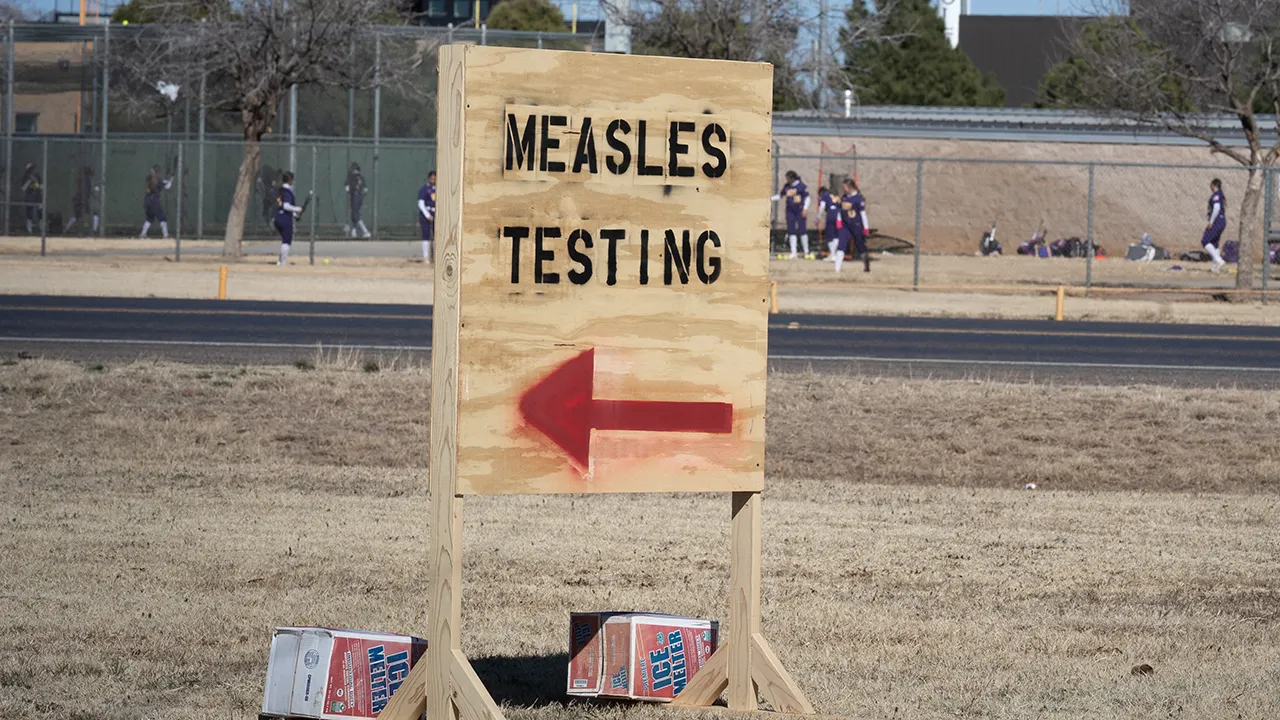Tragic Measles Outbreak Claims Lives: A New Mexico Adult Follows Texas Child’s Fatal Case
The recent measles outbreak has brought to light the devastating power of preventable diseases, with the unfortunate deaths of two individuals—a child in Texas and an adult in New Mexico—raising serious concerns about public health and vaccination rates across the region. The loss of life in these cases emphasizes the critical importance of vaccination and the need for robust public health initiatives to protect vulnerable populations.
Understanding Measles and Its Risks
Measles is a highly contagious viral infection that primarily affects children, although adults can also contract the disease. Characterized by symptoms such as a high fever, cough, runny nose, and a distinctive red rash, measles can lead to severe complications, including pneumonia, encephalitis, and even death. The virus can remain active and contagious in the air for up to two hours after an infected person has left an area, making it one of the most transmissible viruses known.
Despite the availability of a safe and effective vaccine, which has been proven to reduce the incidence of measles significantly, vaccination rates have fluctuated in recent years, particularly in certain communities. This fluctuation has resulted in a resurgence of measles cases in various parts of the United States, including the recent tragic cases in Texas and New Mexico.
The Recent Tragedy: A Closer Look
The measles outbreak claimed its first victim—a young child in Texas—whose death shocked the local community. Just a week later, reports emerged of an adult in New Mexico who succumbed to the same disease. Both cases highlight the vulnerability of individuals who are either unvaccinated or whose vaccinations have not been kept up to date.
Health officials have indicated that the deceased individuals were not vaccinated, prompting urgent discussions about the importance of immunization in preventing such tragedies. These tragic cases serve as a stark reminder that measles can be particularly deadly, not only for children but also for adults who may have weakened immune systems or underlying health conditions.
Vaccination Rates and Public Health Responses
The resurgence of measles underscores a troubling trend: declining vaccination rates in certain communities. The Centers for Disease Control and Prevention (CDC) recommends a two-dose schedule for the measles, mumps, and rubella (MMR) vaccine, and it is crucial for communities to maintain high vaccination coverage—ideally above 95%—to achieve herd immunity.
Several factors contribute to declining vaccination rates, including:
- Misinformation: The rise of anti-vaccine sentiments fueled by misinformation on social media platforms has led some parents to question the safety and necessity of vaccines.
- Access Issues: In some areas, particularly rural or underserved communities, access to vaccinations can be limited due to a lack of healthcare facilities or financial barriers.
- Complacency: As diseases like measles become less common due to vaccination efforts, some may feel complacent and less inclined to vaccinate their children.
How Communities Can Respond
To prevent future outbreaks and protect vulnerable populations, communities must take proactive steps to increase vaccination rates and promote public health awareness. Here are some effective strategies:
- Education Campaigns: Public health officials should launch campaigns to educate communities about the importance of vaccines and dispel myths surrounding vaccination.
- Improved Access: Ensuring that vaccinations are readily available, affordable, and easy to access for all families can help improve vaccination rates.
- Community Engagement: Engaging local leaders and trusted figures in discussions about vaccination can help build trust and encourage vaccine uptake.
The Role of Healthcare Professionals
Healthcare providers play a crucial role in ensuring that patients receive necessary vaccinations. Physicians and nurses should take the opportunity during routine check-ups to discuss vaccination schedules with parents and patients. By providing clear, evidence-based information, healthcare professionals can help alleviate fears and encourage vaccination.
Moreover, it is essential for healthcare providers to stay informed about local outbreaks and vaccination rates. This knowledge allows them to tailor their conversations with patients effectively, ensuring they address specific concerns and promote vaccine compliance.
The Importance of Herd Immunity
Herd immunity occurs when a significant portion of a population is vaccinated, thereby providing a measure of protection for individuals who cannot be vaccinated, such as infants, pregnant women, or those with compromised immune systems. Maintaining high vaccination rates is critical for protecting these vulnerable groups and preventing the spread of diseases like measles.
As seen in the recent outbreak, when vaccination rates drop, the risk of disease resurgence increases, leading to tragic outcomes. Communities must work together to ensure that everyone understands the importance of vaccines, not just for individual protection but for the safety of the entire population.
Looking Ahead: A Call to Action
The heartbreaking deaths of the Texas child and New Mexico adult serve as a profound call to action for communities, healthcare providers, and public health officials. It is imperative to heighten awareness about the importance of measles vaccinations and to implement strategies that enhance access and education regarding immunization.
By fostering a culture of vaccination, communities can protect their most vulnerable members and prevent future tragedies. As we move forward, let us honor the memories of those lost by ensuring that no one else has to suffer the consequences of preventable diseases like measles.
In conclusion, the recent measles outbreak serves as a sobering reminder of the critical importance of vaccination and public health initiatives. Working together, we can safeguard our communities and ensure that tragedies like these do not occur again.
See more WebMD Network



